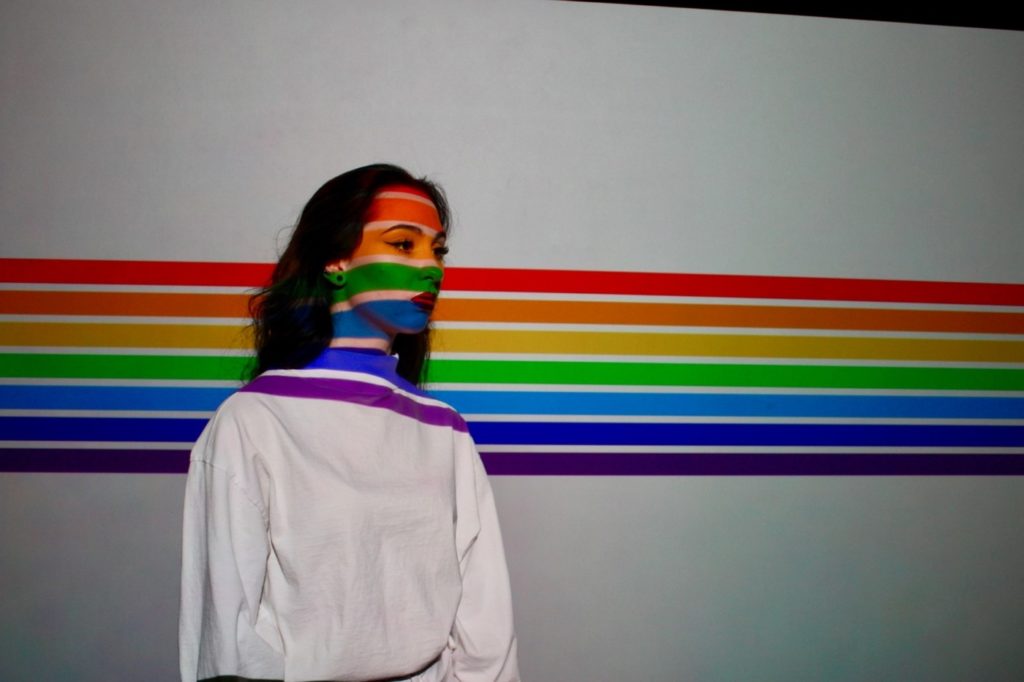A new report released this week shows that artists are discriminated because of their actual or perceived sexual orientation and gender identity.
The report by Freemuse, a human rights organisation that defends the right to freedom of artistic expression, documents cases and trends from January 2018 to June 2020 and shows that LGBTI artistic endeavours are marginalised globally.
“It’s alarming to witness this large scale of illegitimate restrictions of LGBTI artistic freedom including in Europe, said Dr Srirak Plipat, Freemuse Executive Director. ”Freedom of artistic expression of LGBTI artists is freedom of artistic expression of everyone.”
According to the report, at least 77 countries use criminalisation of homosexuality laws, criminal codes, and the newly popular ‘anti-LGBTI propaganda laws’ to silence LGBTI artists, while these legal instruments are inconsistent with international human rights standards in the first place.
The report was launched on Thursday (10 December) in Krakow, Poland. This was no coincidence considering the incitement against LGTBI-people in the country where a number of municipalities have declared themselves so-called LGTB-ideology free zones. In her state of union speech in September, European Commission President Ursula von der Leyen said that such zones have no place in the EU.
Krakow differs from other cities because of its special but also tragic history. ”Openness is an important feature of Krakow, whose rich heritage was created in a multicultural contact,” said Jacek Majchrowski, the major of Krakow, at an event co-organised with the City of Krakow and streamed live from ICE Krakow Congress Centre.
”Apart from outstanding and extraordinary people who came to Krakow due to various political or military situations, Krakow has always attracted ordinary immigrants who brought various cultural influences to the city's tissue. At the same time, they contributed to the social and economic development of the city. Krakow has always been a safe haven for non-heteronormative people, including artists of all fields.”
Artists tackling LGBTI issues face disproportionate repercussions because of their work. The report shows that ggovernment authorities are overwhelmingly responsible for these violations of artistic freedom, with over half of the documented cases perpetrated by governments, especially in countries where homosexuality is criminalised.
Is there in general a negative perception of LGBTI people in Poland? “It’s a matter of stereotypes promulgated by some politicians and conservative elements in the Church,” replied Nina Gabrys, chair of the equal treatment council in Krakow. "About 70 % of the population are denouncing these stereotypes and demonstrations for the rights of LGBTI people gather surprisingly many people.”
Professor Andrzej Kulig, First Deputy Mayor of Krakow for Social and Municipal Policy, added that aggressive statements by politicians get publicity but do not necessarily reflect public opinion in the country. “There is a change today. Sexual identity isn’t stigmatized as it used to be in the past.”
Asked about the “LGBT free zones”, he replied that they are not legal and express the frustration of local politicians. There is no formal censorship of artistic freedom during the coronavirus crisis but there may be other forms of suppression of freedom.
“The report means a lot for Krakow. We wanted it to be published in our city to show that we are on the right side and that we respect the artistic freedom of all,” he summarized.
M. Apelblat
The Brussels Times

